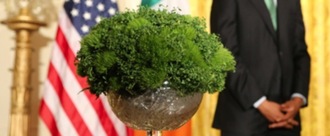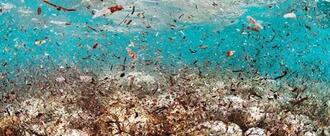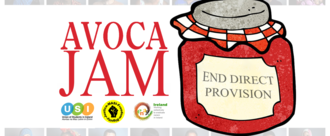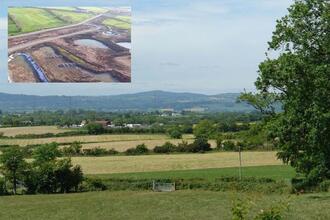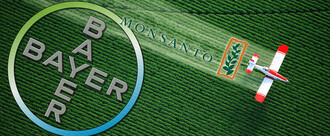- Featured
- Animal Rights
- Anti-racism
- Arts & Culture
- Children
- Climate
- Corporate accountability
- Crime
- Disability rights
- Economic
- Education
- Environment
- Food and Sustainable Production
- Gender Equality
- Governance and Transparency
- Health
- Housing
- LGBT Rights
- Mental health
- Northern Ireland
- Planning
- Privacy and Data Protection
- Rural Inequality
- Social Justice
- Trade
- Transport and Infrastructure
- Workers' Rights
- More
-
No Mass Harvesting of Seaweed on Coastline from Mayo to ClareThe government is supposed to reach a decision in April 2018 on whether or not to grant a license for the right to mechanically harvest seaweed to a private Canadian company. The sale was complicated by a legality. The ownership of the right to harvest seaweed is currently under question. Traditionally local people, owned the rights to harvest seaweed and harvested it in a sustainable way. Mechanically harvesting seaweed is not environmentally sustainable and will have a serious impact on the ecology of the sea. Harvesting rights to seaweed belong to the people and should not be allowed to be sold off by the State for private profit. Seaweed is now a highly lucrative resource which should be harvested in a sustainable way for the benefit of the people of Ireland living now and for future generations.3,151 of 4,000 SignaturesCreated by Noeleen Moran
-
School lunchesAt the moment the Dep of Education doesn't allocate a set time for eating, leaving each school to decide it for themselves. For many years parents have been complaining that children were coming back home with their lunches barely touched, their explanation being the lack of time. This is a very unhealthy habit that concurs in many eating related problems, in the short as in the long term (as obesity and other issues) We believe it's time to review this and the first step is for the schools to have set a minimum of 20 minutes for eating in a single lunch break, followed by the recreation time.647 of 800 SignaturesCreated by Susanna Kehoe
-
We demand our Right2Water Referendum.We want the people's voice to be heard respecting water and sanitation services in Ireland, and a referendum be held. Across the globe ordinary people have undergone tremendous hardship and suffering when water services are privatised. Water is a human right and must never be under the control of 'for profit' companies. Publicly owned, funded and managed water and sanitation services, free at the point of use, is the only way to guarantee access for all.775 of 800 SignaturesCreated by Noreen Murphy
-
Ban now the use of Glyphosate based and all other toxic weedkillers by Sligo County CouncilTo ensure a safer, cleaner living environment for our current and future generations we want a complete ban of glyphosate weedkiller. We are extremely concerned that our Agricultural sector/farmers are bombarded with misinformation and pressure from government bodies that are directly lobbied by toxic chemical companies. We are also calling on the county council to use alternative organic based methods for all weed control. We are aware of the seriousness of the invasive species 'Japanese Knotweed', but studies have concluded that the long term use of glyphosate weedkillers does not actually kill Japanese knotweed. By using organic means to kill this highly invasive species it is proven to be eradicated in the exactly the same time frame. With the projected construction of Irelands first Soil Recovery centre in the Midlands, it has been stipulated that it won't accept any plant or soil material that's contaminated with any chemicals. It makes no sense to use contractors who have no regard for anything but chemical control, which also includes chemicals such as Garlon Ultra and Speed lite Pro which do not have a base glyphosate ingredient. These weedkillers have two other active ingredients (1.) Amino Pyralide (2.) Triclopyr. These active ingredients are incredibly toxic and will leach into the soil and groundwater. They, like RoundUp, do not ever break down and our filtration systems are unable to remove these deadly chemical time bombs. These chemical-based weedkillers are highly carcinogenic and linked to a variety of potentially fatal diseases. Monsanto's Roundup weedkiller, Pathclear, Gallup, Pistol, Weedol and Mossgo are to name but a few of the weedkillers currently on the market that contain the cancer-causing chemical glyphosate which is lethal to all living organisms. Ireland has the second highest level of glyphosate in our surface water in the EU and the third highest death rate of cancer in Europe. 1. https://www.irishtimes.com/news/environment/farmers-weapons-of-mass-destruction-carry-cancer-fears-1.3148492 2. http://greennews.ie/why-is-ireland-diluting-legislation-on-banning-hormone-changing-chemicals/ 3. https://www.euractiv.com/section/agriculture-food/news/france-tables-eu-wide-non-agricultural-pesticide-ban/700 of 800 SignaturesCreated by Meg Rybicki
-
Unchain Our GardenIn December 2017, with the lead up to Christmas, Tony Lowth and the Gardeners arrived one day to find that the Garden gate had been arbitrarily chained up to prevent us access to a space that we diligently maintain. This act was done with zero forewarning, communication, and ultimately any level of human respect or considerations toward the Caretakers of the Garden. This lack of communication, empathy, and essentially acts of adult bullying, hit Tony particularly hard over Christmas - where he became ill with Shingles from the stress of the situation. The slogan of our Community Garden is "Grow Me" to highlight the concept of "no-dig organic gardening" and "growing" positive social economy - by specifically focusing on soil and compost production, by using local waste around Dublin to "grow" new soil. We source our "soil food" through local businesses which helps them to reduce unnecessary bulk waste; minimizing city rubbish collection output. For instance, we collect coffee grinds from local businesses, leaves and grass cuttings from parks and streets, wood chip and other material from local stables, etc. The Garden essentially acts as a hub for this "waste" by transforming it into incredibly fertile soil - which needs to be maintained daily through physical labour to optimize its effectiveness. Tony Lowth, the founder of the Garden space, has been a pillar to the community by transforming a once neglected space FULL with cans and rubbish, into an amazing plot of green. This space is now home to an array of organic vegetables, herbs, flowers, trees, wildlife, and to the people that pass through. Speaking as a Volunteer Gardener, this space has offered me an opportunity to learn planting and composting wisdom directly from Tony which has been invaluable to me. I have further benefited from being in nature which has been extremely beneficial to my well-being and mental health. And the Garden has allowed me to feel a connection to a community which has inspired me on so many other levels. Going to the garden twice a week was the best part of my week. The purpose and benefit of a Community style Garden, is that it weaves all walks of life together to express, inspire, grow, learn, and connect in an open space. These are all concepts that a school - or any form of creative institution, should be promoting at grassroots level, not ostracizing with a lock.443 of 500 SignaturesCreated by Amanda McKnight
-
Barry's tea: Make teabags 100% compostableBarry's teabags are not compostable, they contain 20% polypropylene. This really disappoints me as a long-term loyal Barry's tea drinker. Other teabag manufacturers are able to construct fully compostable teabags, so why can't Barry's? Too often the onus is on the consumer to protect the environment. I believe that corporations also need to step up and do their part. We don't need anymore unnecessary plastics in the world. This petition asks Barry's to change their teabags to make them compostable. A small change that can make a big difference! PG Tips have recently made changes to the way they make teabags. Why not Barry's https://www.telegraph.co.uk/news/2018/02/28/pg-tips-switches-plastic-free-tea-bags-200000-sign-gardeners/13,955 of 15,000 Signatures
-
Stop using plastic cupsWe are drowning in plastic. RTE should lead by example. If you do this it will inspire others too.26 of 100 Signatures
-
"'Shame'rock for Trump - Not in our name"An Taoiseach is our representative abroad. When he accepts prejudice, racism and bigotry, it shames the people of our country. We feel that such an alliance is not good for our country's reputation and undermines our relationship with other countries. Trump is a despicable human being. A point must be reached where falling at the foot of a powerful man, at the expense of our values and morals and international reputation is not acceptable! "'Shame'rock for Trump: Not in our Name"14 of 100 SignaturesCreated by Concerned Citizen
-
Ban micro plastic from Ireland72% of sampled Irish drinking water is contaminated by microplastics [1]. Fish that we eat have been shown to have consumed plastics [2]. We are eating and drinking tiny fragments of plastic - this has become a human health issue of massive proportions. The Government promised to ban microplastics within a year in 2016, but we are still waiting. [3] Countries all over the world are taking action, and we can too. Richard Bruton, it's time to take decisive action and ban all products containing microplastics! We're asking Richard Bruton to follow the lead of other countries across Europe and put in place a ban on the manufacture and sale of plastic microbeads in this country. They do not biodegrade and persist for a very long time in the environment,[1] https://www.independent.ie/irish-news/our-drinking-water-is-widely-contaminated-with-tiny-bits-of-plastic-36104664.html [2] https://theconversation.com/bait-and-switch-anchovies-eat-plastic-because-it-smells-like-prey-81607 [3] http://www.thejournal.ie/readme/micro-beads-there-will-be-more-waste-plastic-in-the-ocean-than-fish-by-2050-3667684-Oct2017/6,224 of 7,000 SignaturesCreated by Clodagh Schofield

-
End Direct Provision: AvocaThe situation in direct provision is cruel, and people are stuck there for up to 7 years. Sign and share our petition here: https://my.uplift.ie/petitions/end-direct-provision-avoca What's wrong with the food it provides at direct provision sites? Lack of nutritional food, chips almost every second day, a menu change every fortnight, little to no access to fresh fruit, no access to self-cater or ethnic foods. This will be one of the biggest shame's on the Irish state since the Magdelene Laundries. Aramark is a US owned company which provides the catering for 3 direct provision centers. It's big, and it doesn't care about small protests against its own name. Aramark bought out Avoca during the summer from an Irish family, and it's quickly becoming one of their most important assets. This will be highly impactful two days before Christmas. It's Avoca's busiest shopping period, and we intend to highlight Avoca and Aramark's ties to direct provision. Sign and share our petition here: https://my.uplift.ie/petitions/end-direct-provision-avoca Let's make some music, and cause a bit of a jam this Christmas. More information here: https://www.irishtimes.com/news/lives-in-limbo359 of 400 SignaturesCreated by Union of Students in Ireland (USI)

-
Don't turn Newtownabbey into the dirty corner of Northern IrelandThe planning committee have a duty to represent ratepayers and seek to establish if these are unlawful decisions. These decisions may be unlawful if there has been no study of the combined health impacts on the people living in the area. Downwind, and in the six miles between these two developments, lie the homes of tens of thousands of people, as well as recreational water bodies, holiday sites and the shores of Belfast Lough. The human cost of poor air quality is huge causing the deaths of more people per year, in Northern Ireland, than passive smoking or road accidents combined and costing the NHS over £20 billion per year. (1) At a time when the World Health Organisation are saying that the greater Belfast area air already exceeds safe levels by 20% we deserve a cumulative health impact study before any further work proceeds. (2) Read more on FB @Stop the Newtownabbey Pig Factory & Stop Hightown Waste Incinerator 1. https://www.belfasttelegraph.co.uk/news/northern-ireland/belfast-air-pollution-levels-among-the-worst-in-uk-35636923.html 2. http://breathelife2030.org/ 3 https://ukhumanrightsblog.com/2017/11/13/air-quality-breaches-stops-development-which-threatened-to-exacerbate-them/215 of 300 SignaturesCreated by Harriett Moore-Boyd
-
Help stop the Bayer- Monsanto mergerIt would be an altogether too powerful body and they would have a complete monopoly on pesticides, fertilizers, seeds etc. Monsanto is a producer of genetically modified crops. A merger between these too would spell disaster for farming and farming produce in Ireland.18 of 100 SignaturesCreated by Rosemary Ryan

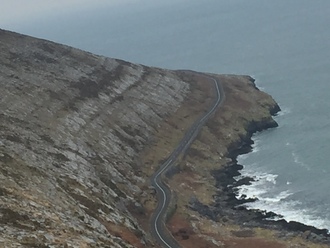

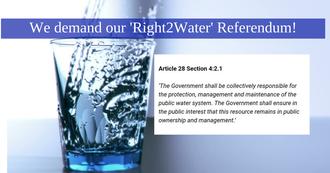
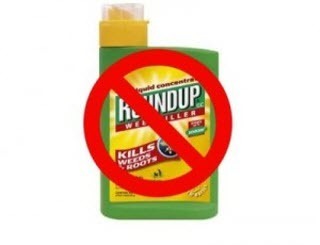
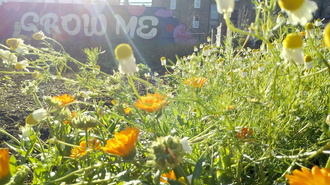
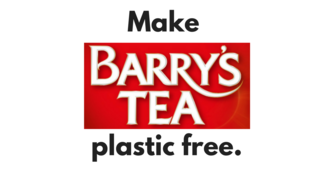
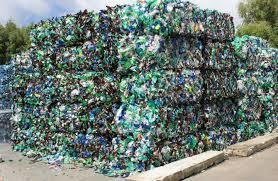.jpeg)
